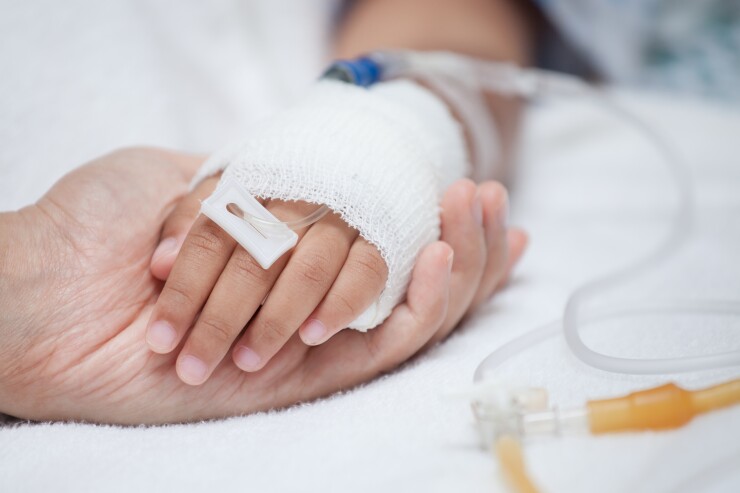Part 4 in an on-going series about dealing with bereavement in the workplace.
- Part 1:
Dealing with death: The toll bereavement takes on advisers - Part 2:
Dealing with death: Responding to bereavement with patience and grace - Part 3:
Dealing with death: Healing from the fog of loss and grief
The loss of loved ones for three employee benefit professionals who shared their respective journeys was hard enough, but unpacking all the medical mishaps along the way was equally difficult.
Altique Consulting Founder Allison De Paoli grieved twice upon losing both parents to traumatic falls about seven months apart. Her father, whose name was Harlan, died at 85 years old on December 7, 2023. Her mother, whose name was Brigitte, died at 83 years old on July 14, 2024. Though divorced, both were living in Florida at the time, while De Paoli lives in San Antonia, Texas.
Despite having a
"I was a terrorist with my father's care because I couldn't get any information," she explains. "I ran up and down looking for doctors. I nearly got in a fist fight with the charge nurse because she told me to go back in the room and be quiet. I stood in the middle of rounds taking notes because nobody would talk to me."
Read more:
The end was far more peaceful for her mother, who also had a medical power of attorney and DNR order.
The mother of Detroit, Mich.-based K2 Strategic Founder Kristine Scheer, whose name was Sharon, passed away at the age of 82 toward the end of January after battling a variety of diagnoses for three and a half years. She had some comorbidities and underlying issues that were cardiac and circulatory related, while also becoming legally blind in one eye due to macular degeneration.
The end was near following a traumatic fall last December that led to her hospitalization. Stints in the ICU and inpatient rehab facility were futile in the face of those comorbidities, which compromised the healing process. She never left her hospital bed after that.
Read more:
That's when Sharon decided not to fight anymore, consulted with a priest and agreed to hospice care. Scheer and her siblings were respectful and supportive of their mother's choice and wanted to ensure that she had the support she needed during whatever time she had left.
A living nightmare
Then there's the experience of Healthee AVP of broker partnerships Amanda Volner, whose sister Kit died September 16, 2023 at just 27 years old, after a series of seizures and medical complications. It proved to be an emotional rollercoaster ride her family would never forget.
The youngest of four siblings who preferred they/them pronouns, her sister was repeatedly admitted and discharged from a hospital in Oklahoma City, Okla., more than 100 miles away from Volner's home in Tulsa. Volner, the oldest, was a teenager when she was born and later helped take care of her. "They were even my daughter's nanny for a bit and lived with me for a couple of years," she says.
After a CT scan, Kit was prescribed upon her initial discharge Keppra and another drug to
Read more:
After several days of the medicine failing to work, Kit returned to the ER, was discharged once again and given the exact same instructions. They were discovered days later on the floor in their own urine, unable to move. After an ambulance ride back to the same hospital, clinicians dismissed their symptoms as anxiety-related.
Volner asked for an MRI but was told they don't do those in the ER. "And I said, 'well, bullshit.' This is a 27-year-old otherwise healthy person. An autoimmune disorder doesn't have anything to do with this neurological issue," she recalls. After threatening to remove her sister from the hospital and ask that they document in their chart the reason for refusing to order an MRI and receive a copy of the paperwork, she was told half an hour later that an MRI would happen after all.
The result showed a five-millimeter infection on her sister's brain that required emergency surgery. So, Kit was admitted to the ICU where they was heavily sedated, then woke up screaming in excruciating pain and was moved to a regular floor to make room for more sick patients. Their pain persisted and Volner pleaded that she be sent back to the ICU.
"Ultimately, my sister did become brain dead, and I stayed at the hospital with my mom night and day, sleeping with two chairs pushed together, pacing the halls, taking turns begging them to try anything else," she recalls, noting how anger was building among her entire family.
Stay tuned for part 5 of this series, live on Thursday.






